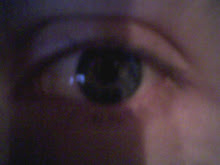THE MOON sits low in the horizon, a cool white orb against a starry night sky, its radiance interrupted only by the black silhouette of skeletal trees, their branches arcing up into the moonlight like arms, broken and twisted, reaching to the heavens in desperate prayer.
The man walks home – no, not walks, he stumbles, he shifts and leans, the walk of someone too far into the bottle, the walk of someone for whom placing one foot in front of the other requires absolute concentration, of someone for whom every step is a struggle. The man is tall and slender, with dark hair and unnaturally pale eyes. The air is cool, and the man would shiver if he noticed the cold. He clutches the remains of a bottle in his hand, the amber liquid sloshing about as he shuffles and tips. He pulls from the bottle a long and slow draft, the harsh whiskey burning his throat on its way through to that soft place behind his eyes, that pounding space in the back of his head, and out to the tingling at the ends of his fingertips.
The man’s name is Miles, and he knows things.
The man’s name is Miles, and he is very, very drunk.
Something moves in his peripheral vision; he feels eyes upon him. He whirls around: nothing, but his sudden motion throws him off-balance and he stumbles and falls, kicking up dust and dirt from the unpaved road. No one stands where a moment ago he felt a dozen eyes, a dozen peering faces watching, waiting, silent as the clear black night. He struggles to his feet, still clutching the bottle, but fails to stand. He ponders, momentarily, staying put, laying in the gravel and dust until morning. Pushing that notion aside, he struggles once again and, barely upright, he sees her again.
The girl stands just off to his left, in the corner of his eye, four and a half feet tall, with dark pigtails and a permanent scowl. He knows that if he turned to look, he would see she shares the same unnaturally pale eyes. He also knows that if he turned to look, she would vanish, like a ghost of a memory, a shadow of a thought.
“What are you doing?” she asks, with the stern inquisitiveness that only a 9-year-old girl can muster.
She stares, hands on her hips. Miles bites his lip.
“I’m going home. I can’t-”
“Can’t what, you big dumb boy? Can’t stand up right? Can’t stop being so dumb? You could have helped her, you know,” she scolds him. “You could have at least tried.”
“I’m sorry,” he begins, but his words choke in his throat. “I did try. I just can’t–
“I’m so sorry.”
She sticks out her tongue. He pulls again from the bottle, and the harsh burn once again splashes down his throat. He struggles finally to his feet. He feels her scorn, her scowling face.
“You’re not really here, Anjie. You can’t be here.”
“Sure I can,” she says. “Everyone else is here.”
He feels their eyes upon him, a dozen sad faces, a dozen lonely and lost souls, a dozen people waiting in desperate anticipation.
“You can’t be here, little girl.”
“Don’t call me a little girl, you big, dumb boy.”
“You can’t be here because you’re dead, baby.”
He turns to look, but there is no one there, no one in the cool desert, no one on the horizon, no one on the long road into town.
“You’ve been dead a long time.”
